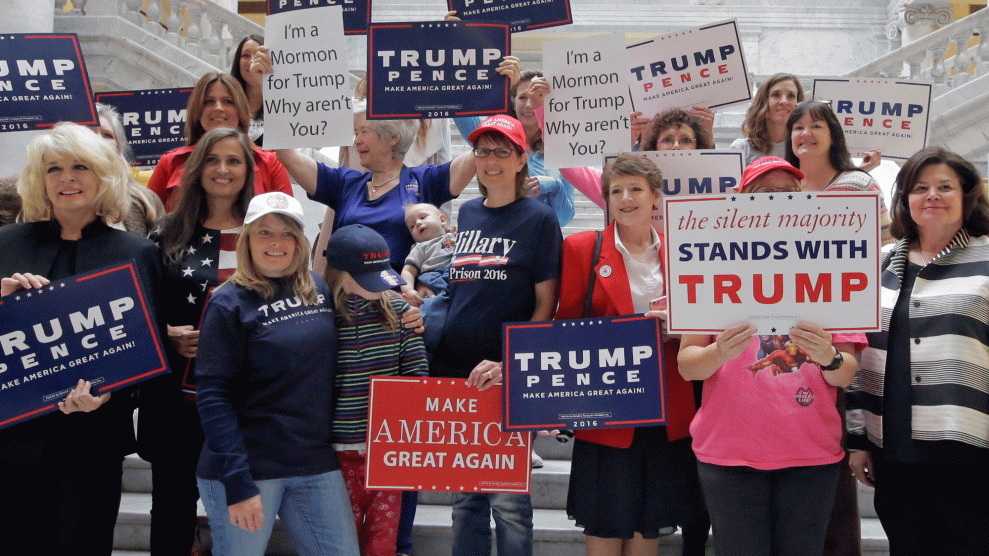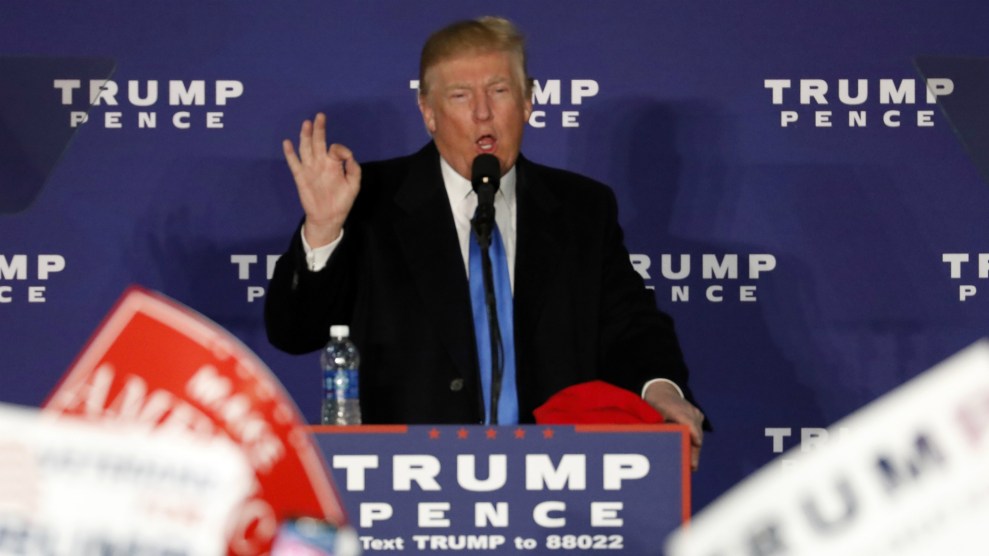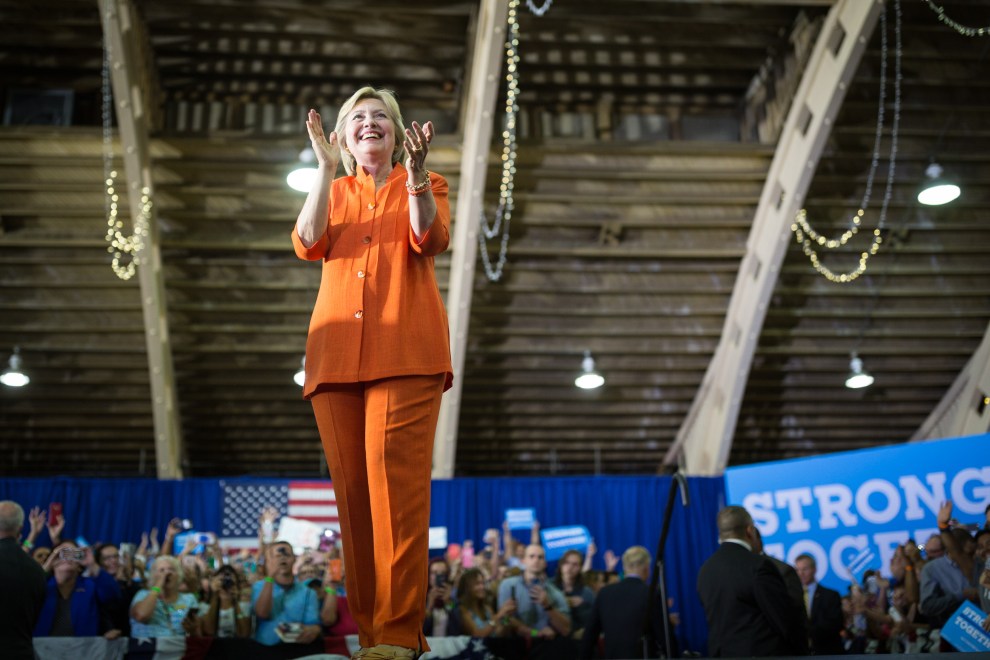
Women backing Donald Trump rally at the Utah state CapitolAP Photo/Rick Bowmer
Among the many ways the electoral map got scrambled as Donald Trump’s poll numbers tanked this summer and fall, perhaps the most intriguing was the possibility that Trump might lose Utah. Polls showed a neck-and-neck race in the state that voted overwhelmingly for the Republican candidate in 2012. Mormons, news stories said, were deeply offended by the boorish GOP nominee, who was everything they detested: a mean, philandering, sexist, immoral lout who had the nerve to make fun of their beloved Mitt Romney. State leaders, including Republican Sen. Mike Lee, declared their opposition to him. The Deseret News, owned by the LDS church, called on Trump to drop out of the race last month.
But while it made for an interesting political drama, Trump—who has outperformed expectations around the country and may be closing in on a victory—was never likely to lose Utah. And that’s partly because the main alternative, Hillary Clinton, was a woman.
Utah can be a difficult place to be a woman. The patriarchal culture of the state’s dominant religion is strong. Women aren’t allowed to be ordained as leaders in the LDS church, and they’re taught to be subordinate to men. The religious viewpoint is reflected in the state’s politics. No woman holds statewide office in Utah. Only 15 percent of the state Legislature is female, compared with 24 percent nationally and 42 percent in neighboring Colorado.
The pay gap between men and women in Utah is the fourth-highest in the nation, with women making only 70 cents for every dollar made by a man. Utah has one of the worst gender gaps in the country in college graduation rates, and the depth of the education gap may be further masked by all the bachelor’s degrees given out by church-owned Brigham Young University in “family and consumer sciences,” with college courses like “Preparation for Marriage,” interior design, and food preparation in the home—classes dominated by women.
The state has extensive abortion restrictions, and until just recently BYU made a practice of punishing students who were the victims of sexual assault, with collusion from the local Provo police department, which reported them to the school. It’s not a place where women were likely feeling empowered to be “with her.”
“I think that internalized misogyny is what will ultimately lead Mormon women to vote against their best interests,” predicted Utah activist Kate Kelly when I spoke with her last month. Kelly is a Mormon feminist who was ex-communicated from the church in 2014 for advocating the ordination of women, so she has some experience in this department. “They won’t say, ‘I’m not voting for Hillary because she’s a woman.’ They’ll use coded language. ‘She’s deceitful, she’s too shrill, she’s immoral.'”
The education deficit between men and women in the state may have reduced the likelihood that the state’s women would vote for Clinton, given Trump’s success with less educated voters. One of the reasons Trump lagged in the polls nationally is that women deserted him in droves, with Clinton leading among women, at various points, by between 15 and 33 points. That wasn’t the case in Utah, where polls heading into the election showed a small gender difference, with 40 percent of men and 33 percent of women backing Trump.
Clinton put Utahans, particularly Mormon women, in a genuine bind. “It’s this interesting conundrum, where we can’t vote for Trump because he’s an unmitigated slimeball, but we can’t vote for Hillary because she’s everything we’re taught not to be,” says Kelly. “She’s the opposite of the pedestal paradigm that Mormon women are told to strive for. She works outside the home. She doesn’t cook. She talks powerfully and stridently about important high-level issues. All of these things are very frowned upon by Mormon women, and in a way, they’re afraid of them.” And in the end, Kelly says, to vote for Clinton, Mormon women might have to take a hard look at their own faith. “If women can’t be leaders in our church but they can be the leader of the free world,” she said, “what does that say about our church?”

















